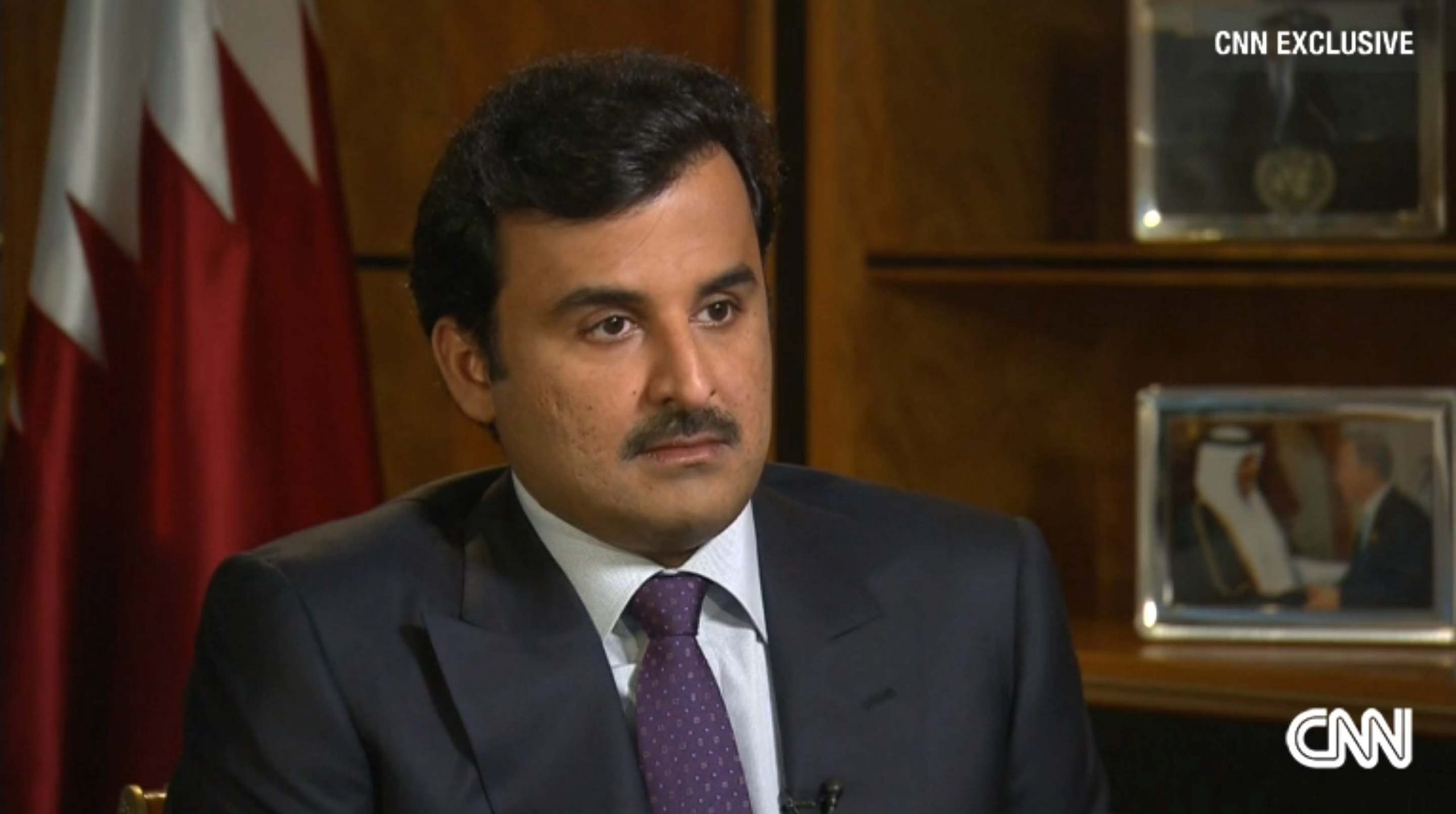
The US must work with Qatar and its regional peers to “pull the Middle East back from the brink of collapse,” the Gulf state’s Emir has said in an op-ed to the American president ahead of his first official visit to the White House.
Amid widespread speculation about what the two world leaders would discuss, Sheikh Tamim bin Hamad Al Thani laid out his agenda to the US public in the New York Times.

In the article, the Emir highlighted Qatar’s participation in the US-led fight against ISIL members, as well as repeated calls for other countries to stand up to end “the tyrannical rule of the likes of Bashar al-Assad of Syria.”
Another topic that is expected to come up is Egypt. Last week, Qatar recalled its ambassador in Cairo over remarks made by an Egyptian official suggesting the Gulf state supports terrorism.
In the op-ed, the Emir did not mention the incident, but emphasized that “bullets and bombs” were not enough to win the war on extremism, adding that understanding the root cause of terrorism was a prerequisite to tackling its prevalence:
“I know that many in the West look at the terrorist threat and say that the problem is Islam. But as a Muslim, I can tell you that the problem isn’t Islam — it’s hopelessness. It’s the kind of hopelessness that abounds in the Syrian and Palestinian refugee camps, and in war-weary towns and villages in Syria, Iraq, Yemen, Libya and Gaza.
It’s the hopelessness we see in the poorer neighborhoods of Europe’s great cities, and, yes, even in the United States. And it is this hopelessness, which knows no state or religion, that we need to address if we are to stem the tide of terrorism.”
Skeptical audience
Though Qatar is a key US ally, hosting the largest American air base in the Middle East, public opinion toward the Gulf state is not favorable among some circles in the states.
Ahead of the Emir’s visit with President Barack Obama, an article in Politico slammed Qatar as a “major source of hateful religious incitement,” citing the country’s support of Hamas and funding of Al Jazeera Arabic, which it criticized for extolling Palestinians who fight against Israeli occupation as “martyrs.”

Much of the furor in the US seems to stem over allegations that Qatar supports militant groups, a claim that the country’s top officials has repeatedly denounced.
Still, the country has nevertheless come under fire for supposedly being a permissive conduit for fundraising in support of armed organizations operating in the region.
In a separate article, The Wall Street Journal said Qatar has moved to clamp down against alleged terrorist financiers in recent months, but added that US officials believe many of Qataris who raise money for Syrian rebels are still active.
The article goes on to highlight how the US government is divided over Qatar’s relationship with groups such as Hamas, the Taliban and the Nusra Front. While those connections anger some, others see value in using Qatar as a channel to communicate with the organizations.
To be fair, one analyst who spoke to AFP said that Doha has long supported the same groups as Washington, but because some of these factions have become radicalized in the past few years, have been accused of supporting extremists.
Christopher Davidson, an expert on Middle East politics at Durham University in Britain, added:
“I don’t really buy this charge that Qatar is a shrewd operator. Since the beginning of the Obama administration, Qatar has positioned itself as a useful second fiddle (for the US) in the Middle East.”
Thoughts?







